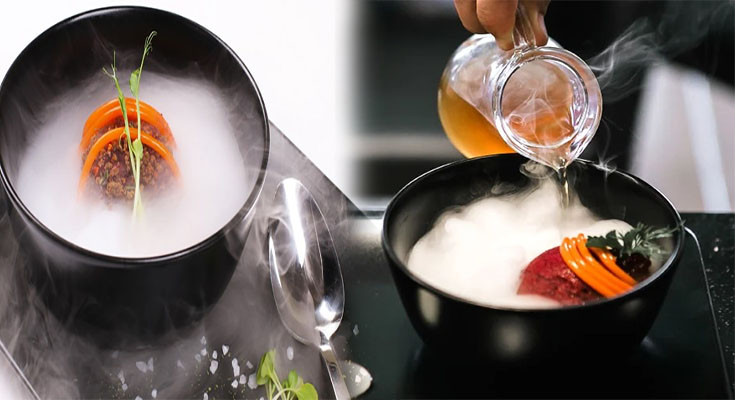Culinary artistry is not just about cooking and presenting food, but it is also about exploring new methods and techniques to create innovative dishes. Molecular gastronomy is one such innovative approach to cooking that has taken the culinary world by storm. With its emphasis on scientific principles and innovative techniques, this culinary movement is transforming the way chefs approach cooking.
Molecular gastronomy focuses on the chemical and physical processes that occur during cooking. By understanding these processes, chefs are able to develop new techniques and methods of preparing food that not only enhance flavors and textures but also create unique experiences for diners. In molecular gastronomy, chefs use small quantities of ingredients to create complex and layered flavors, textures, and presentations.
One of the most popular techniques in molecular gastronomy is sous vide cooking. This method involves vacuum-sealing food in airtight plastic bags and cooking it in a water bath at a precise temperature for an extended period of time. This technique results in perfectly cooked and tender meats, vegetables, and even desserts.
Another popular technique in molecular gastronomy is foam creation. Foams are made from savory or sweet ingredients and are used to add texture and dimension to dishes. These foams can be created using a range of chemical processes, from emulsification to molecular bonding.
Gelification and spherification are other techniques in molecular gastronomy that are used to create unique textures and presentations. Gelification involves turning liquids into a gel-like texture, while spherification involves creating small spheres or “caviar” using a reaction between two ingredients.
Overall, molecular gastronomy is a revolutionary approach to culinary artistry. By exploring and understanding the chemical and physical processes of cooking, chefs are able to create innovative and unique dishes that are both visually stunning and delicious. Whether you are a professional chef or a home cook, exploring the world of molecular gastronomy can take your culinary skills to the next level.

